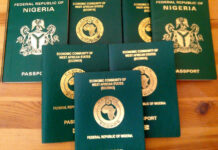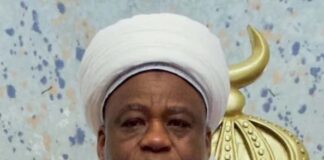By Haroon Ishola Balogun
Ramadan is here again. In about 14 days from now, we will be welcoming the holy month. The month of fasting and prayers. The month of Al-Qur’an and the grate month of destiny which has in it a night that is better than a thousand month.
The present situation of cash crunch has disproportionately affected our socio-economic life. Workers, traders, farmers and all service orientated business owners have been badly hit. The low- and middle-income class is badly hit. I mean in the hardest form where personal and household finances have been killed. It is like a taste of hell for all the innocent Nigerians. All strata of the economy have been affected, except most probably, the few who commandeered our collective wealth for their person gains. The Buhari-Emefiele cashless policy is a top-rated stress for the living being.
However, fasting in Ramadan is a must for us as Muslims and we have to carry out all religious activities cashless or not. Yes, it would have been much more easier if had had good and life elevating policy., but we still have to forge ahead, and I believe we will have full reward observing this saum and doing all the necessary ibadaah under this excruciating conditions. All we need do is to plan very well ahead of time.
READ ALSO: Sermon: Beware of opposing Allah and His Prophet in choosing, selecting or electing a leader!
The purpose of fasting as prescribed by Qurān (2:183) is to practice self-restraint (taqwa). Ramadan at its essence is about regulating our emotions, thoughts, and behavior in the face of stress, hardships temptations, and impulses. This aspect of self-restraint will regulate our financial behavior and curb all forms of excessive spending which has no benefit. Therefore, financial discipline and showing compassion for those in stress which we are all suffering now is more relevant than ever in this Ramadan. But note that spending in Ramadan for spiritual purposes is more beneficial. Provision of food for the fasting Muslims, financial assistance to the needy, aiding the cause of Allah and humanity; zakat and sadaqah are more rewarding than spending on materialism, impulses, desires and frivolities.
- Don’t be bothered about the no-cash situation; carry out shopping where they have digital devices that can aid your e-payment. In fact it provides a pleasant user experience, convenience, and enhanced security. We should greatly benefit from the seamless payment system we have been constricted to. Although network can be very frustrating as it has shown during this period, but once we adequately plan for it and execute these plans well before Ramadan starts, we will be at ease.
- Only purchase what you need it. Frugality goes hand in hand with spirituality in Ramadan. Quran (25:67) considers a balance financial lifestyle personality trait of the believers: “who in their spending are neither extravagant nor stingy but maintain moderation (between the two extremes)”. So, before purchasing an item, ask yourself: do you really need it or is it just a result of an overwhelming temptation or a status quo? Therefore, you should only spend on necessities such as utilities, transportation, housing, education, medication, etc.
- Make provision for sadaqah. In Islam, giving Zakat and Sadaqah (chairty) has enormous rewards. The Quran verses and the Prophet’s (sallallahu alaihi wasallam) hadith attest to the fact that giving charity not only is an act of kindness toward the recipients but it has enormous benefits for those who give it including warding off life’s challenges and problems and resulting in increase of one’s wealth. Allah tells us in the Quran that while we are still living and inhabiting the earth, we should give from our wealth to the poor. “O you who believe! Spend of that with which we have provided for you, before a Day comes when there will be no bargaining, nor friendship, nor intercession…” [Surah al-Baqarah 2:254]
- We all know from the Prophet’s (s.a.w.s) sayings about the numerous rewards associated with doing good deeds in general and how they get multiplied. However, for the rewards of giving charity and how they get multiplied, Allah singles out that act and mentions it in the Quran as follows: “The likeness of those who spend their wealth in the way of Allah, is as the likeness of a grain (of corn); it grows seven ears, and each ear has a hundred grains. Allah gives manifold increase to whom He wills. And Allah is All-Sufficient for His creatures’ needs, All-Knower. [Surah al-Baqarah 2:261]
- Then draw out you plan on your ibadaah. In preparing for Ramadan, we want to minimize the risk of our Ramadan not being accepted, as it is a shield against hellfire. This is not a reward we want to take lightly or throw away, and the reward of fasting is the peak of success for a believer. If we are truly sincere and serious about saving ourselves from hellfire, we won’t risk having our worship not accepted. The first thing here is adjusting your intention. Give an intention that you want to carry out all the Ibadaah only for the worship of Allah, praying Allah to permit you and make it easy for you. The best intention for any action is one done for the sake of Allah. State out your plan day to day, week to week till the last day. This is important because you activities in day one may be somewhat or slightly different from what you should do on day two. Just like the activities on the first week in Ramadan will have to be different from that of the last week where you have the I’tikaf, tahjud, lailatul Qadr among others. You need to plan for all these to be able to actively do them and get a full reward.






















